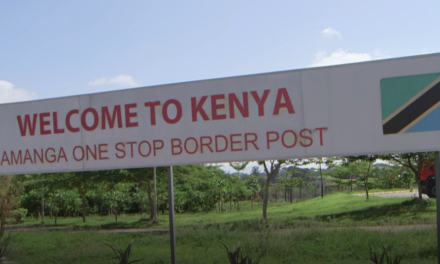
Drug Abuse: Commission formed to fight the vice in Africa

By Njeri Kimani
A new outfit has been formed to curb the drug problem across the region. The formation of the Eastern and Southern Africa Commission on Drugs (ESACD), which seeks to offer a multifaceted approach to the fight against drugs in the continent, indicates the severity of drug use in the region. Its main mandate is advocacy for better laws and practices based on evidence and human rights consideration.
The ESA Commission on Drugs is currently made of four commissioners: former presidents Kgalema Motlanthe, Joaquim Chissano of Mozambique, Cassam Uteem of Mauritius, and professor Quarraisha Abdool Karim and seeks to promote more effective, science-based, and human drugs policies.
It is a project that has been spearheaded by the Global Initiative Against Transnational Organized crime (GITOC), Enhancing Africa’s response to transnational organized crime (ENACT), and Interpol.
According to Julian Rademeyer, the Director of the Organized Crime Observatory for East and Southern Africa at GITOC, parts of eastern and southern Africa are faced with a multifaceted drug problem that is not being met by a commensurate response.
“In recent years, the volume of heroin being shipped from Afghanistan via Pakistan along a network of maritime routes to Eastern and Southern Africa, particularly the Swahili coast appears to have increased considerably. Most of that is destined for Western markets. We’ve seen worrying trends of spillover trade for local consumption within the region, some of it estimated at a total of ten percent of the volume of narcotic traffic,” said Rademeyer in a press statement.
In Cape town, the inexpensive heroine has led to high levels of killings and gang control in gang-afflicted areas. Mauritius and Seychelles also have the highest numbers of people who use drugs per capita in the world. Rademeyer pointed out that the United Nations estimates that by 2020, the number of people who use drugs in Africa will have nearly doubled, according to Rademeyer.
The commission is tasked to review more drug policies and recommends more health-based approaches to dealing with the drug problem across the region, harm reduction, and rights, and catalyze political support for national, regional, and international levels in fighting drug use.
Former Southern African president Kgalema Motlanthe expressed hope that the commission would be able to mobilize communities across the region and secure commitments from governments in a way that would give voice and space for participation to key communities given the criminalization and prohibition of drug use has resulted in the violation of human rights of children and young people.
Professor Quarraisha Abdool Karim pointed out that there was a lot of drug consumption with many ramifications at a community level.
“60 percent of the global HIV health infection is in Eastern and Southern Africa. It is primarily transmitted sexually but with the increase in substance use, we see an increase in injecting drug use which provides a new mode of transmission. Poor policies on how we manage drug use and needle syringe programs, substitution therapy for those who want to manage their dependency, and death from overdose with the increased purification of the drugs are some of the things that attract our interest,” she said.
She noted that substantive evidence shows that the traditional approach that has dominated the war on drugs is not the way to go.
“What we need is a human rights approach. We need a more human-centered approach that includes law reforms, changes in policies in health, and full engagement in the whole sectors in society,” she added.
The composition of our prisons and how big the population is there on drug offenses shows the scale of the drug problem.
“We have found ways to regulate drugs which can be quite harmful like drugs and tobacco, and we need to start drawing on such experiences on legal regulations as we look on how to map a way forward with the currently illicit drugs. So many countries are not offering services on harm reduction which would address the need for clean needles, opioid substitution, availability of overdose antidotes, capacity to have drugs tested, a lot of bad developments in the lacing of drugs now and drug consumption rooms,” said former New Zealand Prime Minister Hellen Clark.
She cited that 75 percent of the world does not have access to pain relief for drug users.
“There are so many of our families who are familiar with what has happened to a family member, who went in to purchase drugs and had a bad experience. Many deaths and injuries. A friend whose son had a dependency and without there being an antidote drug in the house, this young man, who lay in a comma at home for two days lost a leg and the use of an arm,” she added.
“No one should die because of a bad drug health policy problem,” said Hellen.





















Recent Comments